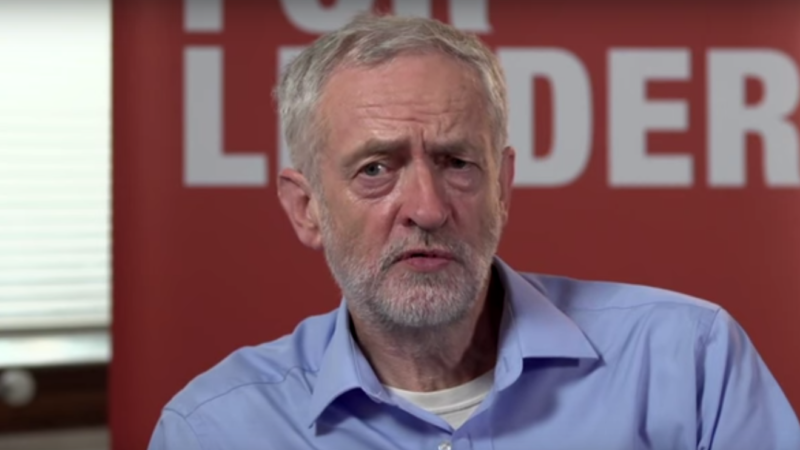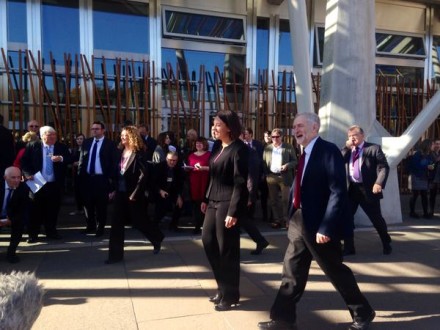

The history of the Labour Party is the history of the union. It was created in its current form when the Scottish Workers Parliamentary Committee merged with what had been the Labour Representation Committee in 1909. In Glasgow, Labour’s unionism was its principle means of warding off sectarian strife. The party became near hegemonic. Over the last decades Labour’s role as the Scottish establishment cemented Edinburgh to London at an elite level.
But the growing estrangement of Labour from the British electorate and the shift in Scotland of the Catholic vote in favour of independence, fatally weakened Scottish Labour unionist politics.
The SNP delivered the coup de grace. It re-worked Scottishness into a modern, inclusive sense of national belonging and skillfully excluded Labour from the Scottish family. Labour was defined as the party of Westminster and the status quo. However much Labour exposed the social democratic failings of the SNP it could not fight on the cultural terrain of national belonging and identity. It no longer had a compelling, popular story of why Britain was ‘better together’.
Despite the vote to remain in the union in 2014’s referendum, the demand for independence had revealed Scotland’s equivocal relationship with England. It highlighted the ambiguous nature of an English polity within the constitution. The morning after the vote, David Cameron committed his coalition government to further devolution. He raised the West Lothian question and challenged Labour to back English votes for English laws.
Despite ample warning of Cameron’s likely intention, Labour was silent. When it finally called for a constitutional convention it sounded defensive. Never had victory looked so like defeat. Labour had won a pyrrhic victory in Scotland and it had failed to identify itself with England. In preserving a status quo that no longer existed, Labour had dramatically weakened itself as a British political force.
Labour’s annual conference followed the referendum. Even at this late stage it could have addressed England directly and recognised its political identity alongside Scotland and Wales. It could have acknowledged that Westminster must change, and that this would mean reducing the influence of Scotland. It could have decisively embraced devolution within England, offering more power to its cities, counties and communities. And it could have begun a debate on an English Labour party. But Labour did none of these things. It had no story to tell England, just as it had had no compelling story of Britain to tell the Scottish people.
Will Scottish Labour revive itself? It can still call on residual loyalties. It is not a toxic brand in the way Labour has become in parts of England. But what exactly does it stand for? The SNP has seized its social democratic mantle. Scottish Labour has stood for the redistributive, unitary British state. But the Tories are transforming its architecture. Scottish voters lack faith in it, and a growing number of English voters believe the Barnett Formula that distributes funding is unfair and over generous to Scotland. Both the official Labour Party inquiry and Jon Cruddas’ independent inquiry reveal that English voters overwhelmingly reject the idea of the SNP as a partner in a Labour led UK government.
Labour’s defeat in the general election of 2010 was arguably its worst since 1918. Its defeat in 2015 was worse still. In Scotland it was wiped out. In England and Wales it is strong in London and in the cities and university towns. But London is now more a global city, and the latter are more cosmopolitan, higher educated, and middle class than the country at large. Labour’s success only highlights the growing gulf between the party and the rest of the country. Its presence in English areas of prosperity is tenuous and it has been driven back into the de-industrialised regions, which have been heavily dependent upon public spending. These can no longer be described as Labour heartlands. The challenge of UKIPs blue-collar English nationalism means that safe Labour seats can no longer be taken for granted.
The story of a country grows out of its customs, traditions, institutions and ways of life. A country has a history and a culture which is material. This culture is an inheritance which forms a common life providing people with their principal source of meaning, and a sense of identity and belonging. In recent decades this common inheritance has started to break apart. Large numbers of people experience a sense of cultural disorientation.
Cultural identification has been shifting away from Britishness toward Englishness, Scottishness and Welshness. There is no one single cause, but the globalisation of capitalism that began in the late 1970s plays a major part in the destruction of our common life. In a single generation, industrial class identities and forms of solidarity, along with the work that formed them, have disappeared. The commercialization and standardization of culture have deracinated local places and identities. Unprecedentedly high levels of immigration have created division, anger and cultural anxiety.
When people feel they are losing a sense of who they are and where they belong, they will either defend their culture, or they will set about reinventing it. Both these conservative and radical responses are redefining the union of Britain.
In October 2015, Labour’s newly elected leader Jeremy Corbyn gave a speech to the Scottish Labour Party conference. He told his audience that decisions about policy, the management of Scottish Labour affairs, and the selection of candidates, will be taken, ‘here in Scotland’ by members and activists. ‘That is what I am committed to and what Kezia and I will deliver, with the UK and Scottish Labour parties co-operating in solidarity with one another.’ Corbyn has conceded the end of Labour unionist politics but has withheld from admitting it. There can be no ‘UK Labour Party’ without Scotland. He continues Labour’s evasion of its predicament.
In May Labour faces the challenges of Scottish and Welsh elections, elections for the London Mayoralty and city Mayoralties, and local council elections in England. Labour stands a good chance of winning in London, and in the metropolitan cities and university towns. In the former industrial regions the party looks set to suffer a further erosion of its support as politics becomes more English focused and driven by political grievances against Westminster politics. The elections for the Scottish Parliament will confirm the SNP’s political ascendency.
Labour’s position is precarious. Its future will be decided in England. It needs a specifically English strategy to identify the politics and policies it will need to win a majority of English seats. It needs to reform itself into a federal UK Labour Party with an English Labour Party, and with Scottish and Welsh Labour granted more autonomy to respond to their own national politics. The party will then be in a better position to secure the union in a more federal constitution.
There is no status quo in the union and so there is no status quo within Labour. The choice is to defend what no longer exists or open up to the cultural life reshaping the country and in doing so radically remake the union of countries in the UK.
This article is part of a series about how Labour should respond to the particular electoral, social and political challenges of England coordinated by John Denham, Director of the Centre for English Identity and Politics at Winchester University.




More from LabourList
‘The hope that kills you’: Reflections from the final day in Gorton and Denton
MPs, union leaders and organisations react to ‘bruising’ Gorton and Denton result
A gory night for Labour